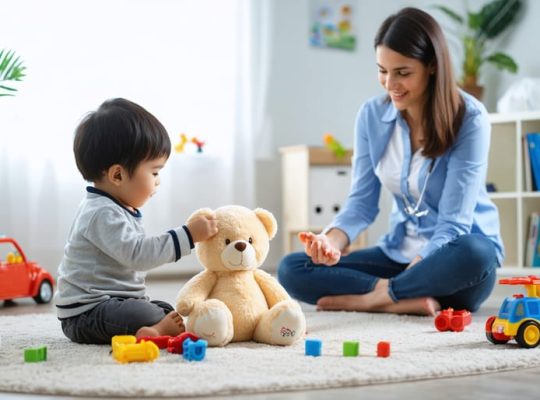Encourage open conversations by gently inviting children to express their feelings. Validate their emotions, letting them know it’s okay to feel whatever they are experiencing. Provide consistent support by establishing routines to help them feel secure and grounded. Connect with mental health professionals for guidance specific to dealing with parental suicide and its psychological impacts. Explore resources together to help children cope with a parent’s suicide and learn coping strategies through therapeutic practices. Engage in memory-making activities that honor and remember the parent positively, fostering a sense of connection and understanding over time.
Understanding the Psychological Effects
Emotional Impact
Children who experience the loss of a parent to suicide often find themselves navigating a complicated landscape of emotions. Grief is expected, but it typically intertwines with a cascade of other feelings such as anger, guilt, and confusion, making the emotional impact quite overwhelming. It is common for children to feel anger towards the parent for leaving them, or towards themselves for not recognizing any warning signs. Guilt often seeps in as they question if they could have done something to prevent it. Confusion is another profound emotion—children might struggle to comprehend why their parent made such a choice, which can lead to further questions about life and death.
These emotional responses may vary widely among children, influenced by their age, personality, and the support systems they have in place. In particular, younger children might express their confusion and anger through changes in behavior, while adolescents might withdraw or exhibit heightened emotional responses. Understanding the difference between an emotional reaction stemming from trauma and stress can help caregivers provide appropriate support. It’s essential for parents, teachers, and healthcare professionals to approach such situations with empathy, offering a safe space for children to express their feelings and receive the reassurance that their emotions are valid and heard.

Cognitive and Behavioral Changes
When a child experiences the loss of a parent to suicide, it can deeply alter their thinking patterns and behaviors. These changes may manifest in various ways, affecting different aspects of the child’s life. Academically, you might notice a decline in their performance. Concentration becomes challenging as their mind dwells on the loss and the complex emotions surrounding it. They might seem disengaged in school activities, leading to potential declines in grades.
Social interactions can also be impacted. Some children may withdraw, avoiding friends and social scenarios that once brought joy, while others might act out as a form of seeking attention or expressing unresolved grief. This shift in behavior is often their way of coping or protecting themselves from further emotional pain.
Mentally, these children can exhibit signs of anxiety and depression, and in some cases, may develop negative thoughts about themselves. It’s crucial for parents, teachers, and healthcare professionals to recognize these signs early. Offering a supportive environment filled with understanding and open dialogue can make a significant difference. Engage them in conversations about their feelings. Validating their emotions and experiences is an essential step toward healing, helping them process their loss in a healthy manner.

Long-term Consequences
Mental Health Challenges
Children who lose a parent to suicide often face profound emotional challenges, which can increase their risk of developing mental health disorders. Depression is a common issue, marked by persistent sadness, loss of interest in daily activities, and fatigue. This profound grief can make it difficult for children to find joy, impacting their overall quality of life. Anxiety is another prevalent concern, with children experiencing intense worry about the future or fear of abandonment. This anxiety can manifest in physical symptoms like headaches or stomachaches, making everyday experiences overwhelming.
It’s important to recognize the signs, as early intervention can prevent these feelings from becoming more severe. Some children might develop post-traumatic stress symptoms, reliving moments associated with their loss or struggling with nightmares. In seeking understanding and support from trusted adults or professionals, such as a school counselor or therapist, children can begin to navigate these feelings in a healthy way. By fostering open communication and encouraging emotional expression, we can help these children process their grief and move towards healing.
Impact on Future Relationships
Growing up with the experience of a parent’s suicide can deeply affect how a child approaches future relationships. This significant loss might foster feelings of abandonment or betrayal, which can lead to trust issues as they fear experiencing such pain again. These children might struggle with allowing themselves to fully trust others, protecting themselves by keeping emotional walls high. However, it’s also important to acknowledge the resilience many develop; some become more empathetic and understanding due to their experiences.
Building healthy relationships in adulthood may require additional support, such as therapy or counseling, to address these underlying fears. Encouragement from supportive friends, family, teachers, and healthcare professionals can help these individuals learn to form strong, trusting bonds. Awareness and empathy from those around them can also provide a sense of safety and acceptance, making a significant difference in how they relate to others. By focusing on understanding and support, they can learn to establish fulfilling and trusting relationships.
Helping Children Cope and Heal
Supportive Communication
When a child loses a parent to suicide, the emotional landscape can be incredibly challenging for them to navigate. Maintaining open and supportive communication is key to helping them through this difficult time. It’s important to foster a safe environment where children feel comfortable expressing their feelings and asking questions. By actively listening without judgment, you can reassure them that their emotions are valid and that they’re not alone. Encouraging open conversations can help diminish the stigma surrounding the topic, making it easier for them to share their thoughts and fears. For more guidance, you can explore resources like talking to your kids about suicide.
Using simple and age-appropriate language ensures children understand the conversation without feeling overwhelmed. It’s beneficial to check in regularly to see how they’re coping and to offer them space to talk at their own pace. Sometimes, sharing personal stories or insights from others who have experienced similar losses can provide comfort and a sense of connection. If needed, seek help from mental health professionals who specialize in child grief counseling. Remember, the support you provide can help build resilience, instill hope, and guide them toward healing in their journey forward.

Therapeutic Interventions
When a child loses a parent to suicide, professional therapy and support groups can be vital lifelines. Therapy provides a safe space for children to express their complex feelings, helping them understand their emotions and build resilience. Therapists often employ techniques like cognitive-behavioral therapy to guide children in processing their grief, addressing feelings of guilt or confusion, and developing healthy coping mechanisms. Meanwhile, support groups offer a sense of belonging and emotional connection, showing children that they are not alone. These groups allow them to share their experiences with peers who understand their unique struggles. Personal stories from others in the group can be incredibly validating and empowering. Expert opinions consistently emphasize the importance of early intervention and consistent support to foster a child’s healing journey. By integrating therapy and supportive community networks, children are given both professional guidance and the compassionate understanding needed to navigate their emotions and move towards healing.
Building a Supportive Environment
Creating a stable and nurturing environment is crucial for children dealing with the loss of a parent to suicide. Consistency in routines and having supportive adults around can significantly help them cope with the emotional turmoil. It’s essential to foster open communication, encouraging children to express their feelings and thoughts without fear of judgment. Involving mental health professionals can provide essential support and guidance. Remember, being patient and empathetic in daily interactions can make a significant difference. Take time to listen and validate their emotions, creating a space where they feel loved and safe to heal at their own pace.
Conclusion
In conclusion, coping with the devastating loss of a parent to suicide is an incredibly challenging experience for any child. It is crucial for parents, teachers, and healthcare professionals to recognize the profound impact such a trauma can have on a child’s emotional and mental well-being. The journey to healing requires supportive environments where children feel safe to express their emotions and ask questions without fear of judgment.
Sharing personal stories of others who have walked a similar path can often provide comfort and validation to children and those supporting them. It’s important to remember that while friends and family can offer a compassionate ear, professional help from mental health experts can provide tailored strategies to help children navigate their grief and build resilience. Engaging with counselors or therapists specialized in child mental health can be a pivotal step towards recovery.
Ultimately, by reinforcing the message that children do not have to face this journey alone, we empower them to heal and grow stronger. Together, our collective support and understanding can guide children through such challenging times, helping them emerge with hope for a brighter future. Encourage seeking help and continue fostering these vital conversations to reduce stigma and increase awareness, ensuring every child’s mental health is prioritized.







